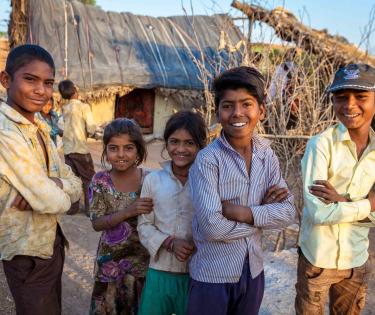The Operational Strategy guides the work of the Stop TB Partnership Secretariat.
Following the decision of the Stop TB Partnership Board in December 2020, the Operational Strategy 2016-2022 will remain in force to guide the Secretariat throughout the transition to a new host.
The new Operational Strategy will coincide with the start of operations under the umbrella of new hosting arrangements.
At its 21st Board meeting in January 2012, the Stop TB Partnership Board requested the development of a three-year Operational Strategy. This Operational Strategy was put in place on 1 January 2013 and continued until 31 December 2015.
At its 26th meeting in April 2015, the Board decided that a new Operational Strategy should be developed for the period 1 January 2016 through 31 December 2022.
The Operational Strategy aligns with the Global Plan to End TB: The Paradigm Shift ("The Global Plan").
The Stop TB Partnership Secretariat has a strong comparative advantage in global advocacy efforts as a neutral voice in TB advocacy, including resource mobilization, with the ability to amplify the voices of partners. The Secretariat facilitates and links partners with common areas of interest and creates a platform to foster consensus and coordinate advocacy approaches.
Engagement with the Global Fund to Fight AIDS, Tuberculosis and Malaria is a top priority for the Partnership, given that the Global Fund provides three-quarters of the external financing for TB. The Secretariat is uniquely positioned to influence Global Fund policy, strategy, and financing discussions to leverage additional TB resources for countries and ensure the continuity of those resources and efficiency and effectiveness during implementation.
The Secretariat has three teams whose main work is devoted to ensuring that high burden country programs and partners receive support to properly fight TB: Challenge Facility for Civil Society, TB REACH, and the Global Drug Facility.
The Operational Strategy has four goals: three strategic (Goals 1, 2 and 3) and one operational (Goal 4).
Goal 1: Advocate, catalyze and facilitate sustained collaboration and coordination among partners to achieve the targets under the Global Plan to End TB and move towards ending TB.
Sub-Goal 1: Ensure TB is high on the political agenda through increased dialogue and engagement with political decision-makers and influencers, and a strong unified community.
Sub-Goal 2: Increase the financial resources available for implementation of the Global Plan to End TB.
Sub-Goal 3: Maximize the impact of the Global Fund’s TB portfolio towards reaching the Global Plan targets.
Goal 2: Support the development, replication and scale-up of innovative approaches (including in the roll-out of new tools) to overcome systemic barriers in the fight against TB.
Goal 3: Facilitate world-wide, equitable access to TB medicines and diagnostics, including new tools, across public and private sectors.
Goal 4: Ensure the optimal and efficient functioning of the Secretariat.




